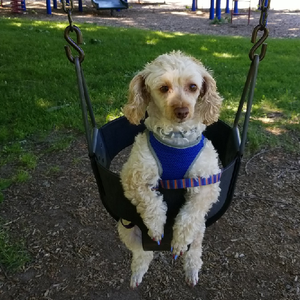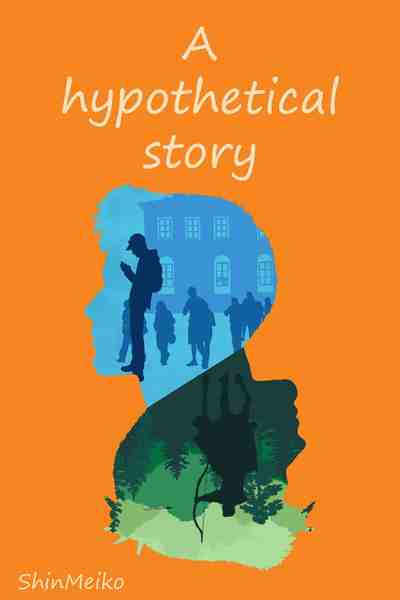Dr. Stanford had to admit that Tom made a very good point, but beyond that, she heard what he was saying: ‘Listen to this story because the truth is hiding under the surface’. It made the process of having to sit through the story even more frustrating, but she knew that pushing wouldn’t bring her anything, so she would wait.
She did not entirely understand where he was going with all his details, she could just gather that food and hygiene were an issue. That water would end up being an issue at some point. It did not particularly help her put an accurate and realistic together. She still put everything that could be a clue in the notes she would give to the police. Maybe it would make more sense to them.
It’s a part she doesn’t enjoy: having to decide which pieces of information to share and which to keep confidential. This is a tricky one as patient confidentiality should be among her top priorities, but… four teenagers are still missing and no one knows if their survival – for those still alive – is time-sensitive or not.
The police did mention the possibility of threatening the survivors with obstruction to justice if they did not comply, but Dr. Stanford thought that would do more harm than good. They clearly do not trust authority figures. Or adults.
It shows all the way to their refusal to engage with their parents. It is especially true for Thomas who is insisting so much that he would go to his father as soon as he would be back.
There is a knock on her door and Dr. Katz walks in. “How is that epic story you’re being told going?” she asks with a tired smile. Dr. Katz is a junior doctor, a baby, almost, twenty-four or twenty-five years old, but she has a very impressive track record working with young children. She was assigned to Maya, who is quite out of her usual age range, as it would be a good way for her professional development, and if she could apply her usual methods on the teenager, it would be a big step forward for the team.
“It’s… infuriatingly vague.”
“Anything new you might explore?”
“I’m not sure. He made allegations about real-world sexual abuse, though.”
“Real-world?” the other therapist repeats with a smile.
Dr. Stanford smiles, realizing her slip. “Well. It seems his story is impacting me more than I realized.”
“Do the allegations sound realistic?”
“They sound plausible. I have notified the police about it. They said they would let me know if there is any truth to them. What about you? Any progress with Maya?”
“She still won’t talk to me about anything that happened during those sixteen months. She said she promised. From what I gathered, she promised a man, it doesn’t seem to be either of the boys, but… who knows what they have been asked to hide?”
“Do you think the others are alive somewhere and they are trying to keep them safe like that?”
“Who knows? But I do agree with you: I don’t think all four are still alive.”
A heavy silence settles in the room. They have never met any of those teenagers, they barely know anything about them, and yet they are desperate to see them back. Maybe Dr. Stanford more than her colleague: through Thomas’ story, she has gotten to know some of them, albeit through his vision of them.
She wants all of them to come back safely.
Jamie and his sweet innocence, almost frailness, balanced by his wilderness knowledge and his eagerness to do well.
John and his laid-back, offensive side, which seemed to be a façade for something deeper.
Lizzy and her cutting personality. Thomas referred to her as ‘Princess’ more than once, but so far, she had not acted in a particularly difficult or entitled manner. Yet another sign of his negative feelings toward her, probably.
Claire and her friendly manners, her positive take on things, her can-do attitude…
All four of them deserve to go back to their families, safe and sound. And be sent to therapy because they definitely all need it. Although… it will only start being helpful the moment they start opening up. Then again, Thomas is doing that, in his own way. As soon as Dr. Stanford cracks his code, understands what he is trying to communicate, she will be able to meet him halfway.
She heard what he was saying. “if someone, anyone, told me something that would be a cause for concern… I wouldn’t care too much about how I was given the information.” His story is odd and doesn’t make any sense, but he is sharing some information.
There is another knock on the door and it is Dr. Brett’s turn to walk in. He sighs and lets himself heavily fall on the empty armchair in front of Dr. Stanford’s desk. “How did your session go?” she asks him.
“It went fine, but it’s not going anywhere. He is very pleasant, extremely polite, and at first, he doesn’t seem to be displaying any sign of trauma, but when I try to talk to him… he refuses to talk about the last sixteen months, which is not particularly surprising at this point, but he is also not willing to discuss his life before, his future… he only talks about science. Don’t get me wrong, we have very interesting and intellectually stimulating conversations, but this is definitely a shield he is putting up and I cannot seem to get through.”
“It’s been less than a week,” Dr. Katz tries to reassure him. “At least you’re not taking steps back.”
“Problems with the girl?”
“She’s not sleeping again. She won’t talk about her nightmares but I can tell it is impacting her.”
Dr.Brett nods and says: “I think it’s time to take things to the next step.”
“We haven’t made any progress yet,” Dr. Stanford counters.
“I know. But keeping them in the hospital does not seem to help. I think we want to work toward them becoming outpatients. They need to be back home, not committed.”
“They are not ready.”
“I agree. But we should start taking steps toward that.”
“What do you suggest?”
“We should let them have lunch together. Supervised. To them, it will let them maintain the only socialization they seem to currently trust, being able to let their guard down a little bit, and it might feel like a reward. For us, it might be the opportunity to learn a lot.”
“Fine,” Dr. Stanford yields. Dr. Brett is her superior, so he does not technically need her permission to make a decision, but she knows he is the type of person to convince his team, not enforce decisions on them. As for Dr. Katz, she voices her opinion when she feels like it, but she is also new to the team and she is still in the habit of following the flow more than directing it at this stage. “When do you want to do that?”
“I don’t see any point in delaying. Let’s start today.”













Comments (4)
See all